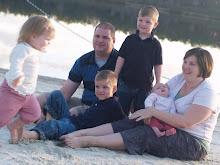One of my favorite Christmas gifts has been the book Radical by David Platt. I've never been one to read in bed, but for some strange reason, I've take up the practice with this book--I'll come back to that. Platt's choice for a subtitle is revealing and maybe even a little offensive to some. The subtitle: "Taking Back Your Faith from the American Dream." Do you love the American dream? If you love it more than Jesus (come on, who's going to agree to that :), then you may feel the urge to burn this book. Those of you without the charred remains of an orange paperback in your hands may want to check it out if your looking for a good read.
The main premise of Platt's plea is that many of us, when we read about Jesus' call to radical discipleship in the gospels, simply ignore the implications or rationalize our way to a less demanding version of faith. I'm not going to go on quoting Radical now. I think that would defeat the purpose. Instead, let's turn our attention to Jesus' words as he addressed those who wanted to follow him."As they were walking along the road, a man said to him, 'I will follow you wherever you go.'
One of the opening stories from Platt's book keeps popping back into my head as I go about my day, living out the American dream. He recalls a visit to an undisclosed village in Asia where a group of 20 local pastors traveled miles to meet in a dimly lit room for prayer and encouragement. They left their homes at different times of the day to avoid suspicion. They were meeting in secret. If caught they could loose their land, jobs, families, or lives.
Jesus replied, 'Foxes have holes and birds of the air have nests, but the Son of Man has no place to lay his head.'
He said to another man, 'Follow me.'
But the man replied, 'Lord, first let me go and bury my father.'
Jesus said to him, 'Let the dead bury their own dead, but you go and proclaim the kingdom of God.'
Still another said, 'I will follow you, Lord; but first let me go back and say good-by to my family.'
Jesus replied, 'No one who puts his hand to the plow and looks back is fit for service in the kingdom of God.'--Luke 9:57-62
"Large crowds were traveling with Jesus, and turning to them he said: 'If anyone comes to me and does not hate his father and mother, his wife and children, his brothers and sisters-- yes, even his own life-- he cannot be my disciple. And anyone who does not carry his cross and follow me cannot be my disciple." --Luke 14:26-27
"As Jesus started on his way, a man ran up to him and fell on his knees before him. "Good teacher," he asked, "what must I do to inherit eternal life?"...
Jesus looked at him and loved him. "One thing you lack," he said. "Go, sell everything you have and give to the poor, and you will have treasure in heaven. Then come, follow me." --Mark 10:17, 21
As they gathered, one of the men poured out his heart and asked that the others pray for his church. Many of the believers in his congregation were being kidnapped an tortured. Another said that members in her church had been threatened by government officials to stop meeting and studying the Bible or they would loose everything they had. Everyone in the room was moved to tears and began crying out to God, Platt says. They didn't pray with theological eloquence. They simply prayed,"O God, thank you for loving us."
They wept before God as each leader prayed. After about an hour of this, they sat in silence; then they rose from the floor and went back to the work of being and making disciples.
"O God, we need you."
"Jesus, we give our lives to you and for you."
"Jesus, we trust in you."
Like I said, I've been reading this book while lying in bed. Maybe you need to lie down for this kind of thing. It's not to be taken lightly, for sure. But lying in a warm bed in a comfortable house while my kids sleep peacefully in their rooms is a stark contrast to Jesus' call to radical discipleship and those who are taking up that call around the world. The church leaders in that village in Asia, may have similar thoughts about their own beds; but there's no doubt that they are willing to risk everything to be Jesus' disciple.
When I'm honest with myself, this kind of reminder shakes me to the core. We live in a place where the supreme value is to get what we can for ourselves and our families, to live comfortably, and to allow others the freedom they need to do the same. Our Lord's supreme value is that we give it all up, even our families if necessary, and to subject ourselves to his will. Very often I'm more obsessed with radical comfort than radical devotion to the creator of the universe and savior of my soul. I'm content to have treasure on earth, and forget--because it's not flashing in my eyes daily--the treasure of heaven.
When you lay down tonight, look around your room. Be honest with yourself as you contemplate your view of your possessions. Think about what your living for. Think about what you want for your children. Then, think about Jesus' invitation to give it all up for his sake. Maybe it's time to rise from the comfort of our beds.
-A Disciple of Jesus
Read more...



